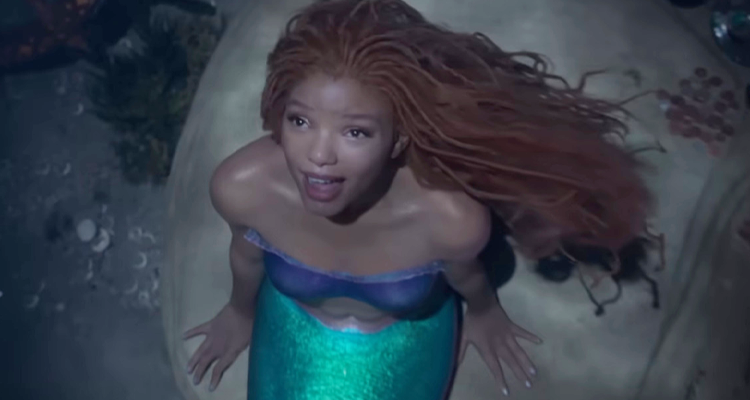Anyone who has spent any amount of time on the pop-culture side of the internet recently knows that racist people are being, well, racist again.
The recent publication of a teaser trailer for Disney’s live-action remake of The Little Mermaid, starring Halle Bailey, piqued the interest of many people who previously had little interest in Disney films.
This trailer’s criticism is unrelated to the film’s dramatic or technical flaws. No, the fury directed at “The Little Mermaid” is solely because a black actress was cast as Ariel. On Twitter, Reddit, and other social media platforms, criticism and calls to boycott the film began to trend; shortly after its release, the official trailer received over 1 million dislikes on YouTube. The level of hostility has grown to the point where a Facebook page named “Christians Against the Little Mermaid” exists (boycott Halle Bailey). Some critics even used artificial intelligence (AI) to replace Bailey’s face in the video with an image of a white lady with red hair.
In May 2016, Disney announced a remake of this film, directed by Rob Marshall (Mary Poppins Returns), with Hamilton creator Lin-Manuel Miranda creating new songs alongside Alan Menken, composer of the original film. Many fans were pleased with Bailey’s casting, even if it wasn’t the one they had hoped for. Her casting was heavily criticized due to her race and lack of red hair.
It is depressingly evident that the bulk of the disapproval expressed against Bailey and Disney is motivated by racism. It is difficult to ignore the bigotry in this pushback, but it should not be ignored. This part has always been played by white characters since Disney initially released the film and has remained so through the company’s multiple sequels, prequels, stage adaptations, and theme park tie-ins. The fundamental reason behind this venomous fury is not only the lack of red hair but also the presence of black skin, subconsciously much more the latter than the former. Any attempt at trying to push exclusively the red hair agenda is hilarious given that Ariel’s red hair in The Little Mermaid is a cartoon red, chosen to complement the film’s technicolor palette.
But why should that cement that the character has to remain white? After all, it is a fictional narrative about a mermaid! Everything about it is made up! So, why can’t kids have an Ariel who looks different from the original cartoon?

The “Daily Show with Trevor Noah” slammed the criticism that Bailey looks “nothing like” the animated Ariel from the 1989 Oscar-winning film. “Really, people—we’re doing this again?” “Nothing like? “They both have the tail; they both have the red [hair].” He continued, “Once again, a bunch of internet racists are upset that a fictional character is being played by a black person.”
Although Bailey has received a lot of support from viewers who claim that her vocal prowess makes her the perfect choice for the role, some viewers have questioned whether singing talent can make up for what they perceive to be a lack of acting expertise. Despite spending a lot of time on Grown-ish, Bailey has little film experience and is most known for her musical abilities. Whether a singing voice in a musical film is more important than acting credentials is still up for debate among internet enthusiasts. Emma Watson’s portrayal as Belle in the live-action Beauty and the Beast is often discussed. Bailey’s singing talent is undeniable, but the movie will also let her showcase her acting prowess.
Why Halle Bailey is the best choice as Ariel
I believe Bailey is a very well-liked figure among Disney’s core fanbase and has shown both acting and voice prowess. Commercially, her casting makes sense. She exudes just the right amount of the warm, curious, and youthful energy that Ariel requires. As evidenced by her work with Chloe x Halle, she unquestionably possesses the vocal range required to perform the Alan Menken songs (something that most women in these live-action remakes lack). Due to her sincere and young supporters, such criteria are surely taken into account in casting projects of this size. She embodies Ariel in many subtle ways.
It is encouraging to see Disney diversify one of its most recognizable trademarks and take on a project with a property that will define its brand. For young, impressionable girls of color, seeing one of the most well-known Disney princesses played by a black actress has a profound emotional and cultural impact. Opportunities like these for BIPOC actors will still be sadly scarce even in 2022. Therefore, it is up to big, international entertainment firms like Disney to set the standard for diverse storytelling in order to change the status quo. Movies like Aladdin, Black Panther, and Crazy Rich Asians ought to be the rule rather than the exception in Hollywood.
Hopefully, the outrage directed at Halle Bailey and The Little Mermaid will go down and we can return to appreciate the positives that this film has to offer. It’s sad that organized hate groups can weaponize improvements in pop culture and the entertainment industry, but what we can do is call it out when it happens and support such endeavors.